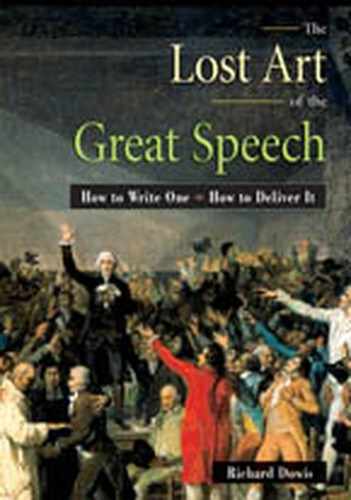Brainstorming: a useful technique
Another good way to prepare for writing a speech is a technique commonly called "brainstorming." In a brainstorming session, several people get together in a comfortable, relaxed setting and just talk in formally about the subject. The group should not be large—five may be the ideal number—but it should be composed of people of varied skills and backgrounds. The composition can be important for a number of reasons. For example, if you have five participants and one happens to be the boss, some of the others might be reluctant to express their thoughts freely. Or they might be all too eager to provide "input" just to impress the boss.
For brainstorming to work well, participants must check their inhibitions at the door. During the session, no idea, thought, or comment should be rejected or ridiculed. Even the most far-fetched idea can spark a better thought in someone else. This ground rule must be made clear from the beginning and gently enforced by the moderator, with such comments as "That's an interesting idea, Bob. What do you think about it, Kathi?" or "I had never thought of it exactly that way; let's get some other ideas."
I recall sitting in on a brainstorming session in which the boss of one man, let's call him Phil, was present. Phil made one suggestion early in the meeting. It wasn't a bad idea, but Phil's boss said, more thoughtlessly than maliciously, "I considered that a long time ago, Phil, and I can tell you straight out, it won't fly." Well, predictably, Phil clammed up. And who could blame him? A good moderator would have salvaged the idea and tried to encourage Phil's continued participation.
Putting together a brainstorming session might not be practical or possible for you. But when it can be done, it can be very effective. There are computer programs available that substitute for the real thing. The one I'm most familiar with is called "Idea Fisher." The name derives from the name of its originator, Marshall Fisher, who got the idea for Idea Fisher while he was taking a course in humor writing at UCLA. The concept is based on word and idea association. The software includes two linked databases: Q-Bank and Idea-Bank. Q-Bank contains nearly 6,000 questions to clarify problems, modify ideas, and evaluate solutions. Idea-Bank contains more than 65,000 idea words and 775,000 associated links. Both Q-Bank and Idea-Bank are intended to stimulate thinking about any subject you choose. Bear in mind, though, that no computer program can think for you. At best, it gives you some tools to help you think for your-self.
Several add-ons to Idea Fisher are available, including one especially for speeches and presentations.
